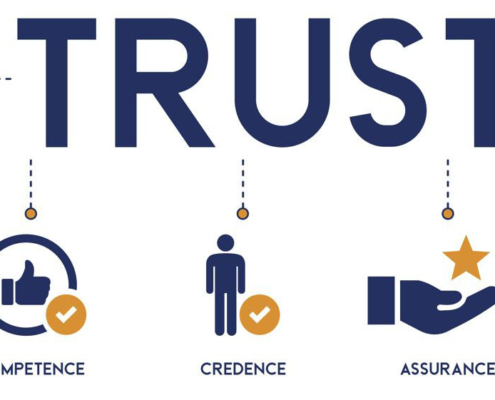Compensatory Damages in Personal Injury. In personal injury lawsuit and car accident injuries, the injured person recovers money damages that lawyers call “compensatory damages.” Compensatory damages include general damages and special damages. General damages in simple terms mean money for pain and suffering. Special damages are for medical bills, car repair, lost wages, etc.
Car accident lawyers refer to money damages under an umbrella term called “compensatory damages.” “Compensatory” damages include both “general” and “special” damages.
“Compensable damages are categorized as either general or special. General damages are those damages that necessarily result from the act complained of.” (Licudine v. Cedars-Sinai Medical Center, 3 Cal. App. 5th 881, 891.)
Car accident injury compensatory damages are authorized under CA Civil Code §3333. “For the breach of an obligation not arising from contract, the measure of damages, except where otherwise expressly provided by this code, is the amount which will compensate for all the detriment proximately caused thereby, whether it could have been anticipated or not.” (Ca Civil § 3333)
“The measure of damages suffered by reason of a tortious act is the amount which will compensate for all the detriment proximately caused thereby whether it could have been anticipated or not. Civil Code § 3333. For such wrongs, damages will be awarded to the extent that the injured party will be restored to the position he would have occupied had the trespass not occurred.” (Cassinos v. Union Oil Co., 14 Cal. App. 4th 1770.)
1. “General damages” In Car Accident Personal Injury
General Damages are those which necessarily result from the act complained of, and are implied by law to have thereby accrued to plaintiff. Special damages, on the other hand, are defined as damages which do not arise from the wrongful act itself, but depend on the circumstances peculiar to the infliction of each respective injury.
“General damages flow from the injuries received. Consequently, general damages are implied by law, and may be inferred from the nature of the injury itself. General damages include damages for pain and suffering, emotional distress, and other forms of detriment that are sometimes characterized as subjective or not directly quantifiable.” (Licudine v. Cedars-Sinai Medical Center, 3 Cal. App. 5th 881, 891.)
2. “Special” or “Economic” Damages in Auto Accident Personal Injury
“By contrast, special damages do not necessarily arise from the typical infliction of the injury and are instead the out-of-pocket losses peculiar to the infliction of each respective injury. Special damages include medical and related expenses as well as lost income.” (Licudine v. Cedars-Sinai Medical Center, 3 Cal. App. 5th 881, 891.)
Many auto accident lawyers refer to special damages to include medical and related expense, loss of income, and the loss or cost of services. Special damages refer to out-of pocket losses that can be documented by bills, receipts, cancelled checks, and business and wage records. Special damages generally include medical and related expense, loss of income, and the loss or cost of services.
3. “Economic damages” under Prop. 51
For Prop. 51 purposes joint and several liability for economic damages, “Proposition 51, Civil Code § 1431.1 et seq., provides in part that each defendant shall be liable only for the amount of non-economic damages allocated to that defendant in direct proportion to that defendant’s percentage of fault, and a separate judgment shall be rendered against that defendant for that amount. Civil Code § 1431.2.
Proposition 51 eliminates a third party defendant’s joint and several liability to an injured employee for unpaid noneconomic damages attributable to the fault of the employer, who is statutorily immune from suit. Proposition 51 retains the joint liability of all tortfeasors, regardless of their respective shares of fault, with respect to all objectively provable expenses and monetary losses. On the other hand, the more intangible and subjective categories of damage are limited by Proposition 51 to a rule of strict proportionate liability. (Scalice v. Performance Cleaning Sys., 50 Cal. App. 4th 221, 228.)
4. Prejudgment interest on Personal Injury Damages
By statute, plaintiff may be entitled to prejudgment interest as part of his or her compensatory damages. (Bodell Const. Co. v. Trustees of Calif. State Univ. (1998) 62 Cal.App.4th 1508, 1525.)
Under Civil Code § 3291, an absolute right to 10% prejudgment interest on the compensatory damages portion of a personal injury award when a party rejected an offer of compromise under Civil Code § 998 settlement demand is exceeded by the judgment. (Ca Civil § 3291; Lakin v. Watkins Associated Industries (1993) 6 Cal.4th 644, 656-661.)
Civil Code section 3291 states:
In any action brought to recover damages for personal injury sustained by any person resulting from or occasioned by the tort of any other person, corporation, association, or partnership, whether by negligence or by willful intent of the other person, corporation, association, or partnership, and whether the injury was fatal or otherwise, it is lawful for the plaintiff in the complaint to claim interest on the damages alleged as provided in this section.
If the plaintiff makes an offer pursuant to Section 998 of the Code of Civil Procedure which the defendant does not accept prior to trial or within 30 days, whichever occurs first, and the plaintiff obtains a more favorable judgment, the judgment shall bear interest at the legal rate of 10 percent per annum calculated from the date of the plaintiff’s first offer pursuant to Section 998 of the Code of Civil Procedure which is exceeded by the judgment, and interest shall accrue until the satisfaction of judgment.
This section shall not apply to a public entity, or to a public employee for an act or omission within the scope of employment, and neither the public entity nor the public employee shall be liable, directly or indirectly, to any person for any interest imposed by this section.
5. Income tax on Money from Received from Car Accident Injuries
According to the IRS, “If you receive a settlement for personal physical injuries or physical sickness and did not take an itemized deduction for medical expenses related to the injury or sickness in prior years, the full amount is non-taxable. Do not include the settlement proceeds in your income.” (www.irs.gov/pub/irs-pdf/p4345.pdf )
There are instances where auto accident money received is taxable. It depends on how your settlement is structured. The negotiation between you and the liable driver who injured you should include tax considerations so you can keep as much of your settlement as possible. Money damages awards and settlements, either by lump sum or payments, on account of personal physical injuries or physical sickness are not subject to federal or state income tax (i.e., physical injury compensatory recoveries are excluded from taxable income). (26 USCA § 104(a)(2); Ca Rev & Tax § 17131; also see 26 USCA § 104(a)(1)–workers’ comp benefits for “personal injuries or sickness” not taxable)
6. Money Received for Physical injury Not Taxable
Generally, money received for car accident physical injuries are not taxable. Car accident insurance settlements are generally not taxable, although there are certain exceptions, according to the Internal Revenue Service (IRS).
If a personal injury lawsuit has components of a physical injury or physical sickness, all damages– other than punitive damages that originated from the physical injury are treated as payments received on “account of personal physical injuries or physical sickness.” It does not matter if recipient of the money is the injured party or not. Thus, compensatory damages for wrongful death or loss of consortium arising from a spouse’s physical injury or sickness, are not taxable. (H.R. Conf. Rep. 104- 737, 1996 U.S. Code Cong. & Admin. News 1677, § 5)
7. Money Damages for Emotional Distress is Taxable With Exceptions
Money damages for emotional distress that did not arise from a physical injury or physical illness are taxable. However, there are tax deduction for medical care for emotional distress. (26 USCA § 104(a), last para.; Ca Rev & Tax § 17131; see H.R. Conf. Rep. 104-737, 1996 U.S. Code Cong. & Admin. News 1677, § 5 & fn. 56)
8. Money Received as Prejudgment Interest on Damages are Taxable
Generally, prejudgment interest money received is consider “income” by the IRS, and therefore taxable. 26 USCA § 104. (Kovacs v. Commr. (1993) 100 TC 124, aff’d without opn. (6th Cir. 1994) 25 F.3d 1048) A injured victim may receive a tax-free settlement or judgment, but prejudgmentinterest and postjudgment interest is always taxable.
10. Tax Deduction for Attorney Fees
If a car accident person received money, the person may deduct the attorney’s fee from the taxable money received. Therefore, it is import for car accident lawyer to inform the client that deduction for attorney’s fee on the taxable emotional distress of the money received. (See Srivastava v. Commr. (5th Cir. 2000) 220 F.3d 353, 356, 365-366 & fn. 3)






























